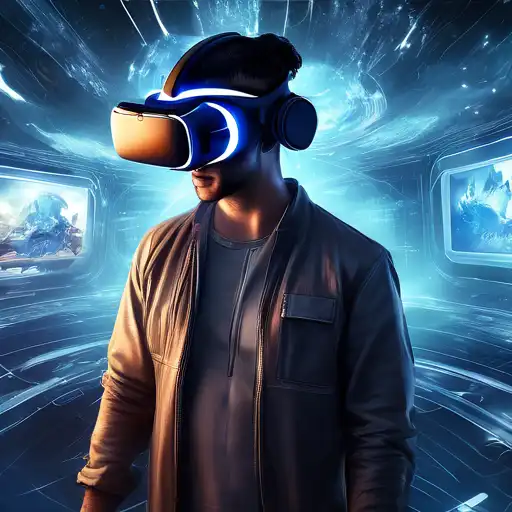Introduction to Virtual Reality
Virtual Reality (VR) has revolutionized the way we interact with digital content, offering an immersive experience that transcends traditional screen-based interactions. By simulating a three-dimensional environment, VR allows users to explore and interact with virtual worlds in a way that feels incredibly real.
The Technology Behind VR
At the core of VR technology are headsets that provide visual and auditory immersion, alongside motion tracking devices that translate real-world movements into the virtual space. This combination creates a seamless experience that can transport users to any imaginable scenario, from the depths of the ocean to the vastness of space.
Applications of Virtual Reality
VR's applications are vast and varied, spanning across industries such as education, healthcare, entertainment, and real estate. In education, VR can simulate historical events or scientific phenomena, providing students with a hands-on learning experience. In healthcare, it's used for surgical training and patient rehabilitation, offering a safe and controlled environment for practice.
- Education: Interactive learning environments
- Healthcare: Surgical simulations and therapy
- Entertainment: Immersive gaming and movies
- Real Estate: Virtual property tours
The Future of VR
As technology advances, the potential for VR continues to expand. With the integration of artificial intelligence and haptic feedback, future VR experiences will become even more realistic and interactive. The development of wireless and more affordable VR headsets will also make this technology accessible to a broader audience, further integrating VR into our daily lives.
Challenges and Considerations
Despite its potential, VR faces challenges such as motion sickness, high costs, and the need for powerful hardware. Addressing these issues is crucial for the widespread adoption of VR technology. Additionally, as VR becomes more prevalent, ethical considerations regarding privacy and content moderation will become increasingly important.
Virtual Reality is not just a technological innovation; it's a new dimension of experience that redefines our interaction with the digital world. As we continue to explore its possibilities, VR promises to unlock unprecedented opportunities for creativity, learning, and connection.
